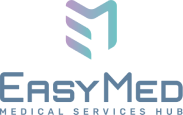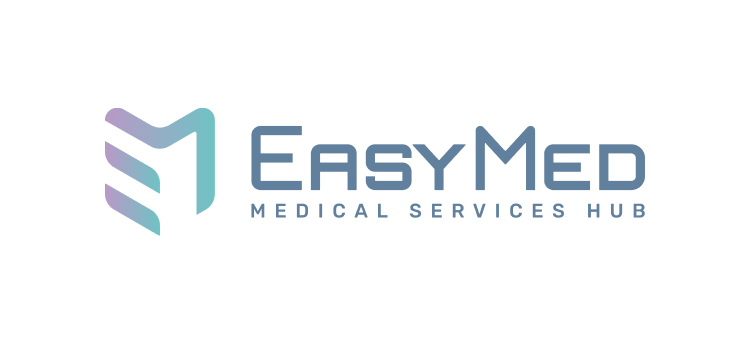
Cardiology consultation
A cardiologist is not just a medical specialty; he is a doctor responsible for the health of one of the most important organs of the human body – the heart. A cardiologist deals with diagnosing, treating, and preventing diseases of the cardiovascular system. A person's general well-being, performance, and even life expectancy depend on the condition of the heart.
Дополнительные процедуры:
- Лабораторный анализ мочи
- Элемент списка #2
- Элемент списка #3
When is it necessary to consult a cardiologist?
- Chest pain: It is especially important to pay attention to a sharp or pressing pain in the chest area, which can radiate to the left arm, neck, jaw, or back. This can be a sign of coronary heart disease.
- Heart palpitations or arrhythmias: An irregular heartbeat, a feeling of "irregularity" in the heart, or an excessively fast pulse can be signs of an arrhythmia.
- Changes in heart rhythm after eating: Some people may experience changes in heart rhythm after eating, which may also require a consultation with a cardiologist.
- Shortness of breath: Difficulty breathing or feeling short of breath, especially when exercising or lying down, may indicate heart failure or other heart conditions.
- Dizziness and fainting: Sudden dizziness or loss of consciousness may be due to insufficient blood supply to the brain due to heart problems.
- Fatigue and weakness: A general feeling of tiredness and weakness, especially when increased with normal daily activities, may indicate heart failure.
- Swelling: A noticeable increase in the volume of the legs, ankles, or abdomen associated with fluid retention can be a sign of heart failure.
- In the presence of risk factors: Regular check-ups with a cardiologist are recommended if you have one or more risk factors. Risk factors include diabetes mellitus, obesity and overweight, high cholesterol, hypertension, smoking, and chronic stress.
- After reaching age: Even if there are no symptoms, it is recommended that people over the age of 40 have regular check-ups.
- Family history: Regular preventive visits to a cardiologist are recommended if you have a family history of cardiovascular disease.
- For lifestyle changes: If you decide to make a lifestyle change, such as starting to exercise after a long period of inactivity, a consultation with a cardiologist may be beneficial.
What Diseases Does a Cardiologist Treat?
- Coronary artery disease (CHD): A condition caused by narrowing of the coronary arteries, resulting in a reduced blood supply to the heart muscle. This can lead to angina pectoris (chest pain) and myocardial infarction (heart attack).
- Hypertension (Hypertension): High blood pressure increases the risk of stroke, heart attack, heart failure, and other complications.
- Heart failure: A condition in which the heart cannot pump blood efficiently, leading to shortness of breath, fatigue, and swelling.
- Arrhythmias: Irregular heart rhythms such as atrial fibrillation, tachycardia, and bradycardia, which may require medication, pacemaker placement, or other procedures.
- Congenital heart defects: Defects of the heart structure present from birth that can range from mild to severe.
- Cardiomyopathies: A group of diseases that affect the heart muscle and can lead to heart failure, arrhythmias, and other serious complications.
- Pericarditis: Inflammation of the pericardium, the lining surrounding the heart, can lead to chest pain and other symptoms.
- Atherosclerosis: A disease in which cholesterol builds up in the walls of the arteries, which can lead to vasoconstriction and blockage.
- Thrombosis and embolism: The formation of blood clots in vessels that can block blood flow and cause heart attacks and strokes.
- Aortic aneurysm: A bulge in the wall of the aorta that can rupture and lead to life-threatening internal bleeding.
Importantly! Do not self-medicate. Seek qualified help from specialists!
Cardiologist's appointment – how it goes and how to prepare
- Taking a medical history: Your doctor will ask about your symptoms, family history, lifestyle, and medical history.
- Physical exam: The exam may include measuring blood pressure and pulse, listening to the heart and lungs, and checking for swelling in the legs.
- Electrocardiogram (ECG): The initial appointment often involves an ECG to assess the heart's electrical activity.
Preparation for an appointment with a cardiologist includes:
- List of symptoms and questions: Before your visit, it is important to prepare a list of symptoms, complaints, and questions that you want to discuss with your doctor.
- Medical history: Prepare information about your current and past illnesses and family illnesses related to cardiovascular problems.
- Medical record: If you have the results of previous medical examinations, cardiograms, or test results, bring them with you.
- List of medications you are taking: Include all medicines, vitamins, and supplements.
Importantly! EasyMed will also notify the patient of the necessary actions to prepare for the appointment.
EasyMed – Your Trusted Partner for Your Heart Health
Scheduling a consultation with a cardiologist through EasyMed offers several significant advantages, especially regarding a comprehensive approach to diagnosing and treating cardiovascular diseases.
You can save time looking for a clinic and a qualified cardiologist, as EasyMed provides a prompt appointment for a consultation, which is especially important in urgent medical care. After the consultation and diagnosis, we continue to accompany the client. We will organize all the necessary subsequent diagnostic procedures, which will greatly facilitate the treatment process and eliminate the need for independent planning.
Thus, making an appointment for a consultation with a cardiologist through EasyMed not only simplifies and speeds up the process of obtaining medical care but also provides a high level of organization and support at all stages of diagnosis and treatment.
Хотите записаться на проверку?
Заполните следующие данные
и мы свяжемся с вами как можно скорее
Faq
Часто задаваемые вопросы
Мы предоставляем персональные услуги в области медицинского обслуживания. Наша основная задача – обеспечить вам быструю запись на необходимое медицинское обследование или на консультацию врача.
Не надо ждать несколько месяцев: с нами вы попадете к нужному специалисту в кратчайшие сроки.
Сроки ожидания зависят от сложности процедуры и от профиля врача. К некоторым специалистам мы сможем сделать запись через 1-2 дня. На сложные процедуры, срок ожидания которых достигает нескольких месяцев, с нами вы попадете в течение 2-3 недель.
Есть ряд процедур (например, сложные виды МРТ), которых пациент может ожидать около полутора лет. Мы сможем сократить этот срок до 3-ех месяцев.
Мы сотрудничаем с ведущими специалистами различных профилей, а также с топовыми клиниками и лабораториями по всему Израилю и за рубежом.
Наши врачи используют новейшие протоколы лечения и самые передовые технологии. Клиники, с которыми мы работаем, оснащены современным оборудованием, которое обеспечивает наиболее точные результаты.
Наши партнеры — это опытные профессионалы, которые заслужили доверие благодаря своему опыту, знаниям и профессионализму.
Мы работаем во всех регионах Израиля. Запись на прием будет назначена в наиболее удобной для вас локации.
Стоимость услуг зависит от сложности процедуры и от профиля врача. Для получения точной информации и расчета стоимости оставьте ваши данные или позвоните по номеру:
Да, абсолютно. Конфиденциальность и защита личной информации наших клиентов являются одним из наших ключевых приоритетов. Мы строго соблюдаем все правовые и этические нормы, чтобы обеспечивать максимальную безопасность ваших данных.
Наши специалисты проверят, полагается ли в конкретном случае возврат средств от страховой компании. Если да, то после прохождения процедуры квитанция будет направлена страховому агенту, который, в свою очередь, делает запрос в страховую компанию на возврат положенной пациенту суммы за пройденную процедуру.



